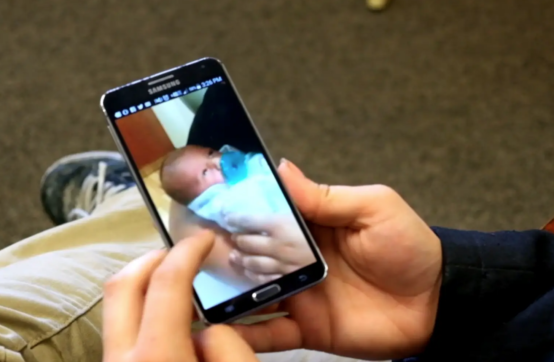U.S. citizenship can be a scary subject for some Adoptees and adoptive parents. Here, our post-adoption services team breaks down some of the basics.
Rumors are flying, misinformation is spreading like wildfire, and fear is running high in the adoption community. Unfortunately, we don’t see any relief from these fears for Adoptees and their families in the near future. Holt’s post-adoption team fields calls every day from Adoptees and adoptive parents who are worried they can’t prove their citizenship, or wonder if they even have it at all.
An adoptive mom called Holt because her placing agency has closed, her daughter is now a high school senior, and she’s been told that her daughter isn’t a citizen. Mom adopted from China during a time when the Certificate of Citizenship wasn’t automatically issued on arrival, and the child’s social security card was issued in the Adoptee’s Chinese name. Now they are applying to colleges and for financial aid with a social security card that reflects her status as a permanent resident, not a U.S. citizen. Her local social security office refuses to change the card, telling Mom that her adopted daughter is here illegally.
The other day, we received an email from the mother of two older boys, both of whom have their Certificate of Citizenship. However, the U.S.C.I.S. officer who issued the certificates told her that she was required to have both certificates “registered by the local court.” But her local court had no idea what she needed!
Following a recent Facebook group discussion, the adoptive parents of a teenager contacted Holt regarding Adoptees losing their U.S. citizenship at age 18. Another parent called because she is worried that her 24-year-old son will be deported simply because he lost his certificate. In another instance, an ROTC recruitment officer contacted Holt to confirm his belief that since an Adoptee applicant wasn’t naturalized, he wasn’t a citizen. One adult Adoptee who reached out to us for help was informed by the motor vehicles department that she is not a U.S. citizen — and that even if she had a permanent resident card, she wouldn’t be allowed to renew her license. Parents of another child shared that a USCIS officer informed them that it’s impossible to become a citizen in one day, and that everyone must be naturalized, even a recently adopted child.
The most recent calls have come from parents worried that their child’s citizenship will be revoked, and from Adoptees with expired permanent resident cards who fear they will be deported if they renew their card or apply for citizenship — all based on news accounts of denaturalization.
If these stories are a small sampling of the calls and emails we’ve received in the past six months, we can’t even imagine how many parents and Adoptees are concerned but haven’t contacted their agency at all.
Although Holt’s post-adoption team are not immigration experts, we have through the years assisted hundreds of Adoptees and families. And based on our research and experience, we know that the vast majority of the fears and rumors we hear are either misleading, misunderstood or flat out wrong. As we are not immigration lawyers, in most cases, we cannot provide recommendations. But what we can do is ease the fear and offer ideas and options to these parents and Adoptees.
The first thing we suggest is not to believe everything you hear, even if it seems to be from a reliable source. Unfortunately, many employees at your local social security office or department of motor vehicles don’t receive the training they need to understand how Adoptee immigration and citizenship differ from other types of immigration. Their information is based on decades-old regulations, or regulations that don’t apply to international Adoptees. Most of these employees are following what they believe are the regulations.
Although Holt’s post-adoption team are not immigration experts, we have through the years assisted hundreds of Adoptees and families. And based on our research and experience, we know that the vast majority of the fears and rumors we hear are either misleading, misunderstood or flat out wrong.
News accounts don’t always include the details needed to fully understand a particular case. For example, there are well over 100 types of visas, from temporary to permanent. Children adopted through Holt are classified as immediate relatives, which dictates the type of visa they receive. If their adoption is not finalized in their country of birth, they become permanent residents on arrival, and citizens when the adoption is completed in a U.S. court. If the adoption is already recognized as final by the U.S., they become citizens on arrival. These are entirely different types of visas than a student visa, work visa or humanitarian visa. The type of visa also dictates how long you’re allowed to stay.
Another misunderstanding is the belief that an expired permanent resident card (Green Card) makes a permanent resident illegally in the U.S. This is not necessarily true. If you are not a U.S. citizen, you are required to keep your Green Card current, carry it with you at all times, and present it to your employer, department of motor vehicles, or other government offices when requested. However, if you are classified as a permanent resident, an expired Green Card doesn’t mean you’re illegally in this country. Again, because of their admission to the U.S. as permanent residents or U.S. citizens, children adopted through Holt are not classified the same as other immigrants.
One rumor we’d like to put to rest is that adoptees turning 18 lose their citizenship, or they lose it if they don’t have a Certificate of Citizenship (COC) or Certificate of Naturalization (CON) before that date. A COC or CON is a document that provides proof that the bearer is already a citizen. If the adoptee was ever issued a COC or CON and misplaced it, they do not lose their citizenship and may have a replacement issued to them. It is true that if the adoptee is over 18, and was never issued a COC or CON, there may be more steps for them to take in order to obtain one. As a first step in this process, we strongly suggest adoptees contact their placing agency for more information about their case.
Unfortunately, most of these situations are caused by misinformation, lack of training, or assumptions based on ignorance of citizenship in general. Most of these problems can be resolved through explanations, documentation and obtaining a COC or CON.
We get it. Many of the calls we receive are due to real life, stressful situations. It’s stressful when a parent can’t get their child’s social security card changed, or an Adoptee is told they are illegally in the U.S. Unfortunately, most of these situations are caused by misinformation, lack of training, or assumptions based on ignorance of citizenship in general. Most of these problems can be resolved through explanations, documentation and obtaining (or replacing) a COC or CON. But the fear these problems cause is growing exponentially.
There are a variety of reasons that Holt now urges parents and Adoptees to obtain a Certificate of Citizenship. Many of them I’ve already mentioned. For Adoptees who don’t become a U.S. citizen until their adoption is finalized in a U.S. court, applying for the certificate not only provides proof of citizenship for the Adoptee, it also notifies USCIS that the adoption is complete. We receive at least one report every month of a parent or Adoptee contacting the USCIS helpline only to be told they are not citizens. Typically, this is because the adoption was finalized in a U.S. court rather than the Adoptee’s birth country, so USCIS isn’t aware the adoption is complete. Their last record of that Adoptee is when they entered the country as a permanent resident. By applying for the certificate, USCIS is notified and will update their system to reflect their correct status.
One of the biggest reasons we encourage every Adoptee, of any age, to have a certificate is peace of mind. Many families haven’t had a single issue proving citizenship, and don’t see the need to pay the high fee to obtain it or to replace a lost certificate. They haven’t had a problem – yet. But the time may come when they need that certificate, which can take up to nine months to obtain.
While this is a scary time for some, remember that citizenship for Adoptees, adopted through an agency such as Holt, is a world of its own in the realm of immigration. The majority of the rumors are just that. Do your research, check your documents and keep them safe. And if in doubt, contact your placing agency.
Deb Hanson | Former Holt team member



Doesn’t having a US Passport and keeping it current remove the need for a certificate of citizenship?
Danny – a US passport doesn’t necessarily eliminate the need for a certificate of citizenship (COC). It is definitely proof of citizenship, but it isn’t always accepted in place of the COC. Holt recommends that every adoptee have a COC based on the calls we receive from adoptees who have a passport but are still being required to provide a COC. A COC also never needs to be renewed because it never expires. Thank you for asking!